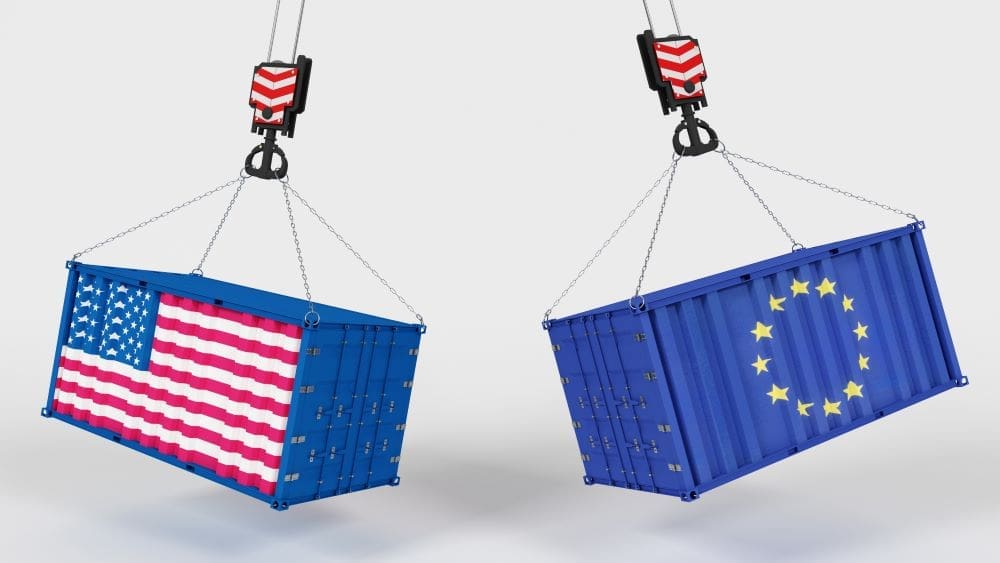Washington, United States | AFP
US trading partners struggled Monday to prepare for a fresh onslaught of Donald Trump tariffs with the US president keeping everyone guessing as to precisely who he will target on what he’s calling “Liberation Day” this week.
Trump — who has been making unprecedented use of presidential powers since taking office in January — is set to announce Wednesday exactly what “reciprocal tariffs” will be imposed and whether he might also target entire sectors.
The Republican billionaire insists that reciprocal action is needed because the world’s biggest economy has been “ripped off by every country in the world.”
Critics, however, warn that the strategy risks a global trade war, provoking a chain reaction of retaliation by major trading partners including China, Canada and the European Union.
Already, China, South Korea and Japan agreed Sunday to strengthen free trade between themselves ahead of Trump’s expected tariff announcement.
White House Press Secretary Karoline Leavitt told reporters that the goal on Wednesday would be to announce “country-based tariffs,” but that Trump remains committed to imposing separate sector-specific charges.
“Any country that has treated the American people unfairly should expect to receive a tariff in return on Wednesday,” Leavitt said.
The uncertainty has jolted markets with key European and Asian indexes closing lower, although the Dow and broad-based S&P 500 eked out gains.
Market nervousness intensified after Trump said Sunday his tariffs would include “all countries.”
The Wall Street Journal reported Sunday that advisers have considered imposing global tariffs of up to 20 percent, to hit almost all US trading partners. Trump remained vague, saying his tariffs would be “far more generous” than ones already levied against US products.

‘Economic pain’
Trump’s fixation on tariffs is fanning US recession fears. Goldman Sachs analysts raised their 12-month recession probability from 20 percent to 35 percent.
This reflects a “lower growth forecast, falling confidence, and statements from White House officials indicating willingness to tolerate economic pain.” Goldman Sachs also lifted its forecast for underlying inflation at end-2025.
China and Canada have imposed counter-tariffs on US goods, while the EU unveiled its own measures due to start in mid-April. More countermeasures could come after Wednesday.
For now, IMF chief Kristalina Georgieva said at a Reuters event Monday that Trump’s tariffs are causing anxiety although their global economic impact should not be dramatic.
Ryan Sweet of Oxford Economics said to “expect the unexpected,” anticipating that Trump would “take aim at some of the largest offenders.”
What matters is how broad-based Trump’s tariffs are and whether the tool is merely a negotiating tactic or part of a more major shift, he said.
Besides reciprocal country tariffs, Trump could unveil additional sector-specific levies on the likes of pharmaceuticals and semiconductors. He earlier announced auto tariffs to take effect Thursday.
Economists have expected the upcoming salvo could target the 15 percent of partners that have persistent trade imbalances with the United States, a group that US Treasury Secretary Scott Bessent dubbed a “Dirty 15.”
The United States has some of its biggest goods deficits with China, the EU, Mexico, Vietnam, Taiwan, Japan, South Korea, Canada and India.
‘Existential moment’
US trade partners are rushing to minimize their exposure, with reports suggesting India might lower some duties.
European Central Bank President Christine Lagarde said Monday that Europe should move towards economic independence, telling France Inter radio that Europe faces an “existential moment.”
Separately, British Prime Minister Keir Starmer spoke with Trump on “productive negotiations” towards a UK-US trade deal, his Downing Street office said Sunday.
German Chancellor Olaf Scholz said the EU would respond firmly to Trump’s tariffs, but stressed that the bloc was open to compromise.
It is “entirely possible” for fresh tariffs to be swiftly reduced or put on hold, said Greta Peisch, partner at law firm Wiley Rein.
In February, Washington paused steep levies on Mexican and Canadian imports for a month as the North American neighbors pursued negotiations.
“There are many different scenarios: delays while talks continue, potential reductions or tariffs being put in place immediately,” added Peisch, a former official at the US Trade Representative’s office.
bys/sms
© Agence France-Presse
Article Source:
Press Release/Material by Beiyi Seow | AFP
Featured image credit: jcomp | Freepik




